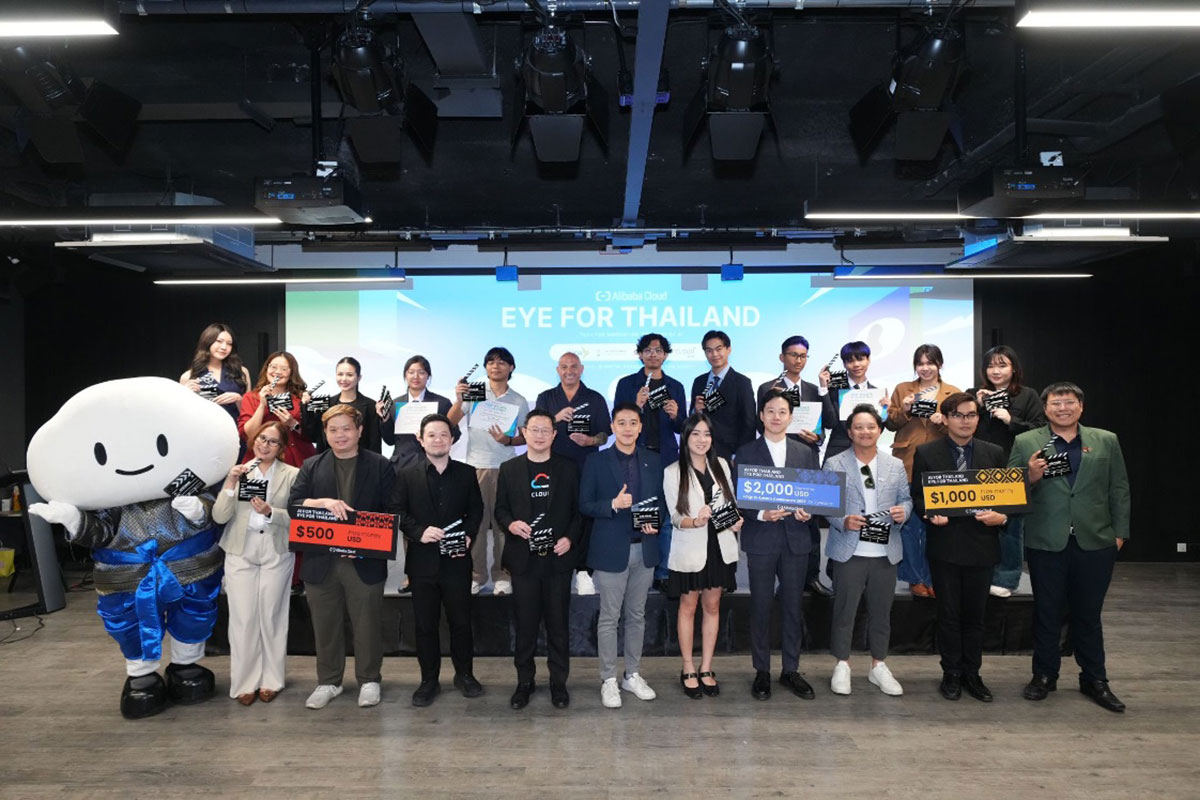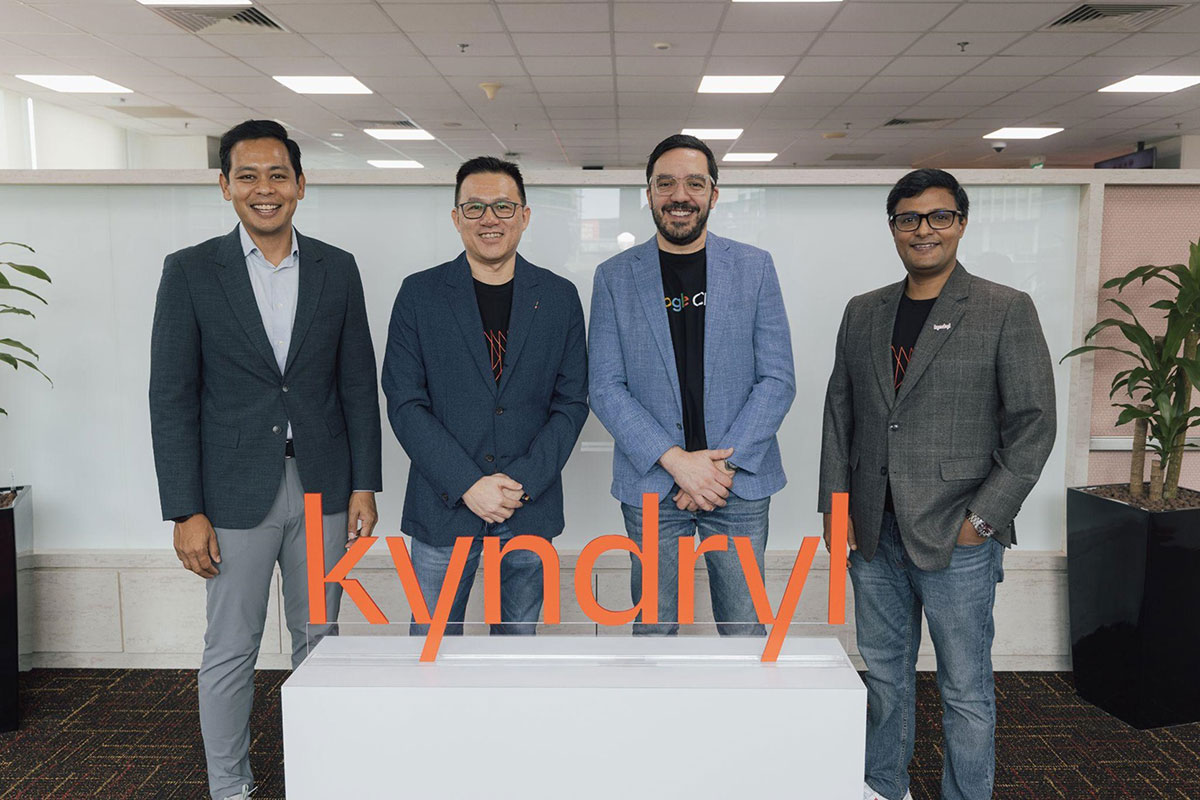เสริมศักยภาพอนาคตดิจิทัลของไทย ด้วยนวัตกรรม AI และ Cloud

เศรษฐกิจดิจิทัลของไทยมีการพัฒนาอย่างรวดเร็ว จากแรงหนุนของภาครัฐ ภาคเอกชน และความต้องการคลาวด์และ AI ประสิทธิภาพสูงที่เพิ่มมากขึ้น องค์กรธุรกิจต่างนำเครื่องมือดิจิทัลหลากหลายไปใช้เพื่อเพิ่มประสิทธิภาพการดำเนินงาน เพิ่มประสบการณ์ที่ยอดเยี่ยมให้ลูกค้า และเปิดประตูสู่โอาสใหม่ ๆ ทางธุรกิจ ส่งผลให้คลาวด์และ AI กลายเป็นองค์ประกอบสำคัญของการเปลี่ยนผ่านทางเศรษฐกิจของประเทศ
รัฐบาลไทยให้ความสำคัญกับการขับเคลื่อนประเทศให้เป็นศูนย์กลาง AI ของภูมิภาคผ่านยุทธศาสตร์สามประการคือ การปลูกฝังผู้มีความสามารถด้าน AI, การพัฒนาโครงสร้างพื้นฐานดิจิทัลให้มีประสิทธิภาพสูง และ เร่งการนำ AI ไปใช้ในอุตสาหกรรมหลักต่าง ๆ ให้ได้อย่างรวดเร็ว มีการตั้งเป้าที่จะฝึกอบรมผู้ใช้ AI จำนวน 10 ล้านราย, มืออาชีพด้าน AI จำนวน 90,000 ราย และ นักพัฒนาด้าน AI จำนวน 50,000 ราย ภายในสองปี ควบคู่กับการลงทุนด้านระบบคลาวด์ ดาต้าเซ็นเตอร์ และแพลตฟอร์ม open-source AI เพื่อใช้โซลูชันที่ปรับขนาดได้และคุ้มค่าการลงทุน
ผลการศึกษาของภาครัฐเผยให้เห็นว่า องค์กรไทยนำ AI มาใช้แล้วไม่ถึง 20% ในขณะที่องค์กรมากกว่า 70% มีแผนที่จะนำมาใช้ ซึ่งแสดงให้เห็นถึงศักยภาพการเติบโตที่ยังมีอีกมาก ความเคลื่อนไหวต่อเนื่องนี้สอดคล้องกับความเคลื่อนไหวของตลาดพับลิคคลาวด์ของประเทศไทย ซึ่งคาดไว้ว่าจะเติบโตที่ 23.68% CAGR ในช่วงปี พ.ศ. 2568 ถึง 2573 และมีมูลค่าถึง 8.51 พันล้านเหรียญสหรัฐฯ ภายในปี พ.ศ. 2573 โดย Infrastructure as a Service (IaaS) ที่คาดว่าจะมีมูลค่าสูงถึง 950.23 ล้านเหรียญสหรัฐฯ ในปี 2568 จะเป็นโซลูชันนำในการตอบสนองการขยายตัวดังกล่าว
สร้างรากฐานรองรับการเติบโต
อาลีบาบา ได้เปิดดาต้าเซ็นเตอร์แห่งที่สองในประเทศไทย ที่มาพร้อมโซลูชันต่าง ๆ มากมาย เมื่อต้นปีนี้ เพื่อสนับสนุนเป้าหมายด้านดิจิทัลของประเทศ โดยโครงสร้างพื้นฐานดาต้าเซ็นเตอร์นี้จะช่วยให้ธุรกิจใช้ AI, วิเคราะห์บิ๊กดาต้า, และใช้แอปพลิเคชันเฉพาะทางของแต่ละอุตสาหกรรมได้โดยไม่ต้องกังวลเรื่องเวลาในการตอบสนอง การปฏิบัติตามกฎระเบียบ หรือความสามารถในการปรับขนาดการใช้งาน
นอกจากด้านโครงสร้างพื้นฐานแล้ว อาลีบาบา คลาวด์ ยังได้ร่วมมือกับสำนักงานส่งเสริมเศรษฐกิจดิจิทัล (depa) และมหาวิทยาลัยต่าง ๆ เพื่อบ่มเพาะผู้มีความสามารถผ่านโปรแกรมอบรม, การแข่งขันด้าน AI, และแพลตฟอร์มอี-เลิร์นนิงต่าง ๆ โครงการที่โดดเด่น เช่น “Eye for Thailand” ซึ่งเป็นการจัดการประกวดวิดีโอที่ใช้ AI ในการสร้างสรรค์รายการแรกของอาลีบาบา คลาวด์ โดยให้ผู้เข้าร่วมแข่งขันใช้ Wan2.1 ซึ่งเป็นโมเดลการที่ใช้สร้างวิดีโอของ ทำการผสมผสานแนวคิดสร้างสรรค์ของคนไทยเข้ากับนวัตกรรม สร้างวิดีโอสั้นส่งเข้าประกวด
มีผู้สนใจสมัครเข้าร่วมการแข่งขันจากหลากหลายวงการมากกว่า 200 รายทั่วประเทศ ไม่ว่าจะเป็นนักพัฒนาซอฟต์แวร์ไปจนถึงนักการตลาด การแข่งขันปิดท้ายด้วยการให้ผู้เข้ารอบสุดท้ายได้แสดงความคิดสร้างสรรค์และทักษะทางเทคนิคในวัน demo day ผู้ชนะรางวัลต่าง ๆ เป็นตัวอย่างที่แสดงให้เห็นว่า AI สามารถปฏิวัติการเล่าเรื่องได้อย่างไร และเป็นการย้ำให้เห็นว่าสาธารณชนมีส่วนร่วมกับเทคโนโลยีเกิดใหม่มากขึ้น
ขยายประสิทธิภาพในระดับภูมิภาคและระดับโลก
เอเชียตะวันออกเฉียงใต้ ยังคงเป็นศูนย์กลางสำคัญในการใช้คลาวด์ นอกจากดาต้าเซ็นเตอร์ใหม่ในประเทศไทยแล้ว บริษัทฯ ยังได้ขยายบริการด้านโครงสร้างพื้นฐานในแม็กซิโก เกาหลีใต้ และมาเลเซีย และจะขยายไปยังฟิลิปปินส์ในเดือนตุลาคม ปัจจุบันเครือข่ายทั่วโลกของบริษัทฯ ครอบคลุม availability zones 15 แห่งใน 29 ภูมิภาค ให้บริการคลาวด์ที่ปรับขนาดได้และมีการตอบสนองที่รวดเร็ว (low-latency)
ความเชี่ยวชาญด้านการย้ายเวิร์กโหลดที่มีความซับซ้อน ที่ได้รับการพิสูจน์แล้วในประเทศอินโดนีเซีย โดยอาลีบาบา คลาวด์ ได้สนับสนุนระบบนิเวศดิจิทัลที่ใหญ่ที่สุดของประเทศ ให้ GoTo Group สามารถเปลี่ยนผ่านโครงสร้างพื้นฐานบริการด้านการเงินของบริษัทฯ ไปไว้บนคลาวด์ของอาลีบาบา คลาวด์ ส่งผลให้สามารถให้บริการผู้ใช้หลายล้านคนได้โดยไม่เกิดการหยุดชะงัก (zero downtime) หลังจากย้ายไปอยู่บนอาลีบาบา คลาวด์ GoTo ย้ายแพลตฟอร์มข้อมูลสำคัญทางธุรกิจโดยใช้ประโยชน์จาก MaxCompute ของอาลีบาบา คลาวด์ เพื่อเพิ่มความคล่องตัวในการดำเนินงานและความคุ้มค่าในการลงทุน มีการย้ายข้อมูลหลายสิบเพตะไบต์โดยไม่มีการหยุดชะงักตลอดระยะเวลาหกเดือน โครงการดังกล่าวเน้นให้เห็นความสามารถของบริษัทฯ ในการให้บริการการทรานส์ฟอร์มขนาดใหญ่ที่ยืดหยุ่นให้กับทุกภาคส่วน
ใคร ๆ ก็ใช้ AI ได้อย่างมีประสิทธิภาพด้วยนวัตกรรมโอเพ่นซอร์ส
โมเดลโอเพ่นซอร์สคือกุญแจสำคัญสู่การมีส่วนร่วมในเวลาที่มีการนำ AI มาใช้อย่างรวดเร็ว Qwen3 ซึ่งเป็นโมเดลภาษาขนาดใหญ่รุ่นล่าสุดของอาลีบาบา มียอดดาวน์โหลดทั่วโลกทะลุ 12.5 ล้านครั้ง นอกจากนี้ Qwen3 series ไม่ว่าจะเป็นโมเดลที่มีพารามิเตอร์ขนาดเล็ก 0.6B ไปจนถึงสถาปัตยกรรม Mixture-of-Experts ประสิทธิภาพสูง ยังช่วยให้นักพัฒนาซอฟต์แวร์สร้างโซลูชัน AI เพื่อใช้ในอุตสาหกรรมการดูแลสุขภาพ ภาคการศึกษา และอุปกรณ์อัจฉริยะต่าง ๆ
Qwen สามารถรองรับภาษาที่หลากหลายซึ่งรวมถึงภาษาไทย อีกทั้งชุมชนโอเพ่นซอร์สที่ไม่หยุดนิ่ง ทำให้เกิดความแตกต่าง ทั้งนี้ นักพัฒนาซอฟต์แวร์ได้สร้างโมเดลอนุพันธ์ (derivative model) มากกว่า 130,000 โมเดลบนแพลตฟอร์มต่าง ๆ เช่น Hugging Face ซึ่งเป็นข้อพิสูจน์ความเก่งกาจของ Qwen การเปิดโอเพ่นซอร์สเครื่องมือเหล่านี้ เป็นการเสริมแกร่งให้สตาร์ทอัพ นักวิจัย และนักพัฒนาซอฟต์แวร์ ให้สามารถขับเคลื่อนนวัตกรรมด้าน AI ต่าง ๆ ได้
เดินหน้าสู่อนาคตแห่งความร่วมมือ
การใช้คลาวด์ การใช้ AI และการพัฒนาทักษะ มีความสำคัญในลำดับต้น ๆ ที่จะทำให้การเปลี่ยนผ่านสู่ดิจิทัลของประเทศทำได้อย่างรวดเร็ว อาลีบาบา คลาวด์ ยังคงมุ่งมั่นที่จะพัฒนาแนวทางเพื่อตอบสนองความต้องการนี้ ผ่านโครงสร้างพื้นฐานที่เชื่อถือได้ เครื่องมือ AI ที่เข้าถึงได้ และการเสริมศักยภาพบุคลากรที่มีความสามารถ
ขณะที่เราขยายฐานการดำเนินงานในประเทศไทยและเอเชียตะวันออกเฉียงใต้ เรามุ่งมั่นที่จะเป็นพันธมิตรที่เชื่อถือได้ในการกำหนดอนาคตดิจิทัลของภูมิภาค ที่ซึ่งนวัตกรรมผสานรวมกับการมีส่วนร่วม และความมุ่งมั่นผสานรวมลงมือปฏิบัติจริง เมื่อร่วมมือกัน เราจะสามารถปลดล็อกโอกาสอันไร้ขีดจำกัดให้กับธุรกิจ ชุมชน และบุคลากรดิจิทัลรุ่นใหม่ของประเทศไทย





